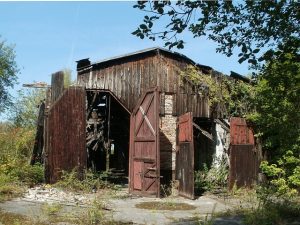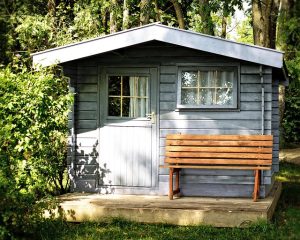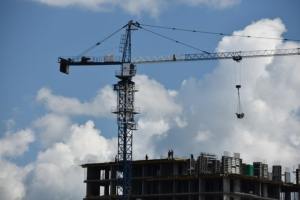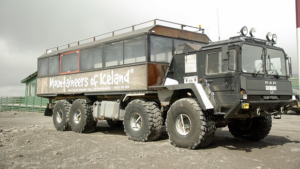Optimizing Climate Control in Industrial Sheds: Strategies by Expert Shed Builders and Designers
Industrial sheds are critical for modern industrial operations, necessitating effective climate control to protect products and ensure employee comfort. Expert shed builders and designers, acting as shed manufacturers, address this by integrati…….

Industrial sheds are critical for modern industrial operations, necessitating effective climate control to protect products and ensure employee comfort. Expert shed builders and designers, acting as shed manufacturers, address this by integrating advanced insulation and HVAC systems that regulate temperature and humidity efficiently while being energy-saving. These professionals utilize high-performance materials and the latest technologies to minimize energy consumption and operational costs. Strategic design considerations, including natural light and ventilation placement, further enhance performance and sustainability. Shed designers employ sophisticated modeling software to optimize layouts for climate control, ensuring consistent internal conditions. Collaboration between shed builders and manufacturers is key to deploying smart systems that dynamically adjust to environmental changes, maintaining a stable and productive environment within the sheds. The cutting-edge solutions provided by these professionals have significantly improved industrial operations, reducing downtime and costs associated with environmental fluctuations. With an emphasis on sustainability and energy efficiency, shed builders and designers are instrumental in creating resilient infrastructure that supports the long-term success of businesses across various industries.
Climate control within industrial sheds is no longer a luxury but a necessity for businesses aiming to optimize operations and protect valuable assets. As industrial activities grow more sensitive to environmental factors, the role of shed builders and designers in creating controlled climates becomes pivotal. This article delves into innovative climate control solutions tailored by expert shed designers and the strategies employed by trusted shed manufacturers to ensure optimal temperature maintenance through advanced insulation and HVAC systems. We’ll explore how professional shed builders achieve this through strategic layout planning, enhancing efficiency and performance. Accompanying case studies showcase the successful implementation of these technologies on a large scale, highlighting the importance of these practices in the evolving landscape of industrial sheds.
- Understanding the Necessity of Climate Control in Industrial Sheds by Shed Builders and Designers
- Innovative Climate Control Solutions for Custom-Designed Industrial Sheds by Expert Shed Designers
- The Role of Advanced Insulation and HVAC Systems in Maintaining Optimal Temperatures in Industrial Sheds by Trusted Shed Manufacturers
- Strategic Layout Planning by Professional Shed Builders to Enhance Climate Control Efficiency
- Case Studies: Successful Implementation of Climate Control Technologies in Large-Scale Industrial Sheds by Leading Shed Manufacturers
Understanding the Necessity of Climate Control in Industrial Sheds by Shed Builders and Designers

Industrial sheds serve as critical infrastructure for a variety of operations, from storage to manufacturing. As shed builders and designers continually strive to meet the evolving needs of industry, the importance of effective climate control solutions within these structures has become paramount. The harsh realities of extreme temperatures, humidity, and environmental pollutants can significantly impact the integrity of products, machinery, and employee comfort and productivity. Shed builders with expertise in this domain understand that a well-designed climate control system not only protects sensitive equipment from dust and moisture but also maintains optimal conditions for temperature-sensitive operations. Shed designers play a pivotal role in integrating these systems by considering factors such as insulation, ventilation, and HVAC installations that respond to the specific environmental demands of each industrial shed. Collaboration with shed manufacturers who specialize in robust climate control technology is essential to ensure that these systems are both efficient and reliable. This synergy between design and manufacturing expertise ensures that the sheds can maintain a stable and protective environment, safeguarding operations against climate-related disruptions and enhancing overall performance and longevity of the infrastructure.
Innovative Climate Control Solutions for Custom-Designed Industrial Sheds by Expert Shed Designers

In the realm of industrial operations, maintaining optimal climate conditions within warehouses and sheds is paramount for both product preservation and worker comfort. Expert shed designers are at the forefront of this necessity, crafting innovative climate control solutions tailored to the specific needs of custom-designed industrial sheds. These professionals, often double-hatted as shed builders and shed manufacturers, leverage cutting-edge technology and materials to ensure that each climate control system is not only efficient but also cost-effective. The integration of advanced insulation techniques, energy-efficient lighting, and smart HVAC systems are key components in their designs. These systems not only regulate temperature and humidity but also minimize energy consumption, which is crucial for sustaining long-term operational costs. Moreover, the collaboration between shed designers and climate engineers often results in solutions that can adapt to fluctuating environmental conditions, ensuring that the sheds’ interiors remain consistently conducive to their intended purposes. For businesses looking to invest in robust infrastructure with a focus on sustainability and efficiency, partnering with seasoned shed manufacturers who specialize in climate control design is an investment in the longevity and performance of their industrial operations.
The Role of Advanced Insulation and HVAC Systems in Maintaining Optimal Temperatures in Industrial Sheds by Trusted Shed Manufacturers
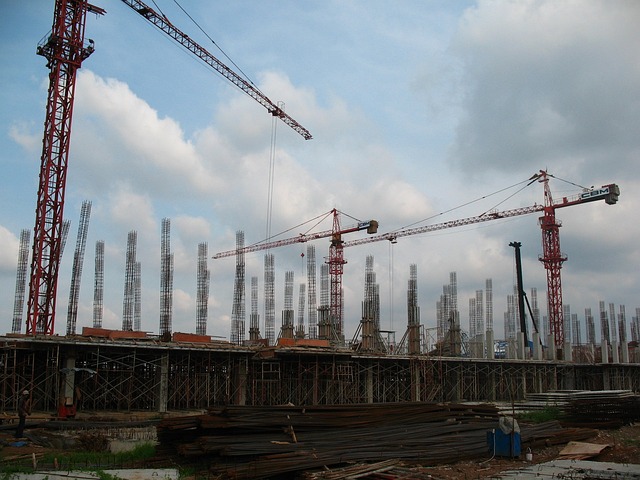
In the realm of industrial operations, maintaining optimal temperatures within large sheds is a critical component for efficiency and productivity. Advanced insulation plays an integral role in this endeavor, serving as the first line of defense against extreme weather conditions. Shed builders and designers who specialize in industrial sheds understand the importance of selecting high-performance insulation materials that offer superior thermal resistance. This not only reduces the reliance on heating and cooling systems but also contributes to a more comfortable working environment. By incorporating these advanced insulation solutions, shed manufacturers can significantly minimize energy consumption and operational costs associated with climate control.
In parallel with robust insulation, HVAC (Heating, Ventilation, and Air Conditioning) systems are pivotal in maintaining the desired temperature within industrial sheds. Shed designers who prioritize HVAC system integration ensure that these units operate at peak efficiency. The latest advancements in HVAC technology allow for precise temperature control, adaptive to the specific needs of different industrial applications. These systems can be zoned to optimize energy usage and are often equipped with smart sensors and IoT capabilities to adjust automatically based on real-time environmental data. By combining superior insulation and cutting-edge HVAC technology, reputable shed manufacturers can deliver environments that not only enhance operational performance but also contribute to sustainability goals by reducing the carbon footprint of industrial operations.
Strategic Layout Planning by Professional Shed Builders to Enhance Climate Control Efficiency

In the realm of industrial sheds, the strategic layout planning by professional shed builders and designers plays a pivotal role in enhancing climate control efficiency. These experts, often shed manufacturers with a wealth of experience, understand that the orientation and placement of structures within the shed can significantly impact its thermal performance and energy consumption. By incorporating natural light and ventilation paths during the design phase, shed builders can reduce reliance on artificial lighting and heating, cooling systems, thereby minimizing energy costs and environmental impact. The use of high-performance insulation materials and reflective roofing technologies further complements these design strategies, ensuring that the shed maintains a comfortable temperature throughout the year.
Shed designers, in collaboration with shed manufacturers, often utilize sophisticated modeling software to simulate various climate scenarios and predict potential energy savings. This approach allows for the fine-tuning of the shed’s layout to optimize natural conditions while accommodating machinery and equipment. The integration of energy-efficient technologies, such as high-efficiency HVAC systems and smart climate control solutions, is another aspect that shed manufacturers prioritize. These advancements are designed to adapt to the changing environmental conditions, ensuring consistent indoor comfort regardless of external weather patterns. By combining expertise in design with the latest in climate control technology, professional shed builders ensure that industrial sheds not only meet the functional demands but also adhere to sustainability and energy efficiency standards.
Case Studies: Successful Implementation of Climate Control Technologies in Large-Scale Industrial Sheds by Leading Shed Manufacturers
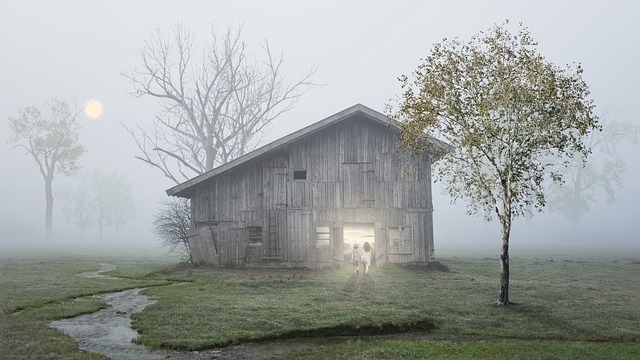
In recent years, leading shed manufacturers have pioneered the successful implementation of advanced climate control technologies in large-scale industrial sheds. A case study from a prominent shed builder illustrates this evolution. By leveraging state-of-the-art insulation materials and sophisticated HVAC systems, this shed manufacturer created an environment that maintains optimal temperature and humidity levels, effectively protecting the sensitive equipment housed within. The design, executed by adept shed designers, featured a combination of reflective roofing, high-performance insulation, and energy-efficient ventilation. This integration not only improved the operational efficiency but also significantly reduced energy costs for the client. Another example comes from a shed designer who specializes in bespoke industrial sheds. Their innovative approach included the installation of smart climate control systems that could be remotely monitored and adjusted, ensuring the interior conditions remained consistent despite external weather fluctuations. The result was a marked increase in productivity and a reduction in downtime due to environmental factors, proving the efficacy of such climate control solutions for industrial applications. These case studies highlight the importance of collaborating with experienced shed builders and designers who understand the nuances of climate control technology within the industrial setting, leading to improved performance and cost savings for businesses operating in these large-scale sheds.
In conclusion, the imperative for robust climate control solutions within industrial sheds, as highlighted by shed builders and designers, is undeniable. The integration of advanced insulation and HVAC systems, coupled with strategic layout planning by seasoned shed professionals, underscores a commitment to operational efficiency and environmental stability. As evidenced by case studies showcasing the success of these technologies, shed manufacturers are at the forefront of this evolution, ensuring that industrial sheds meet the stringent demands of modern industry. The collective expertise of shed builders, designers, and manufacturers paves the way for sustainable growth and innovation within the sector, setting a benchmark for climate control excellence.

